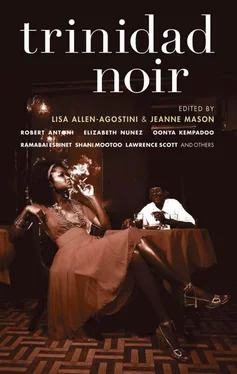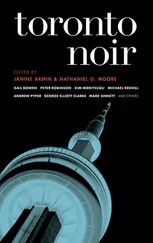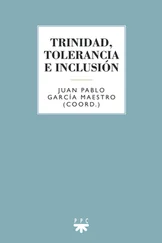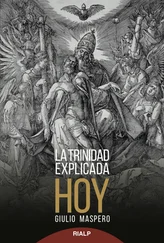Lisa Allen-Agostini - Trinidad Noir
Здесь есть возможность читать онлайн «Lisa Allen-Agostini - Trinidad Noir» весь текст электронной книги совершенно бесплатно (целиком полную версию без сокращений). В некоторых случаях можно слушать аудио, скачать через торрент в формате fb2 и присутствует краткое содержание. Город: New York, Год выпуска: 2008, ISBN: 2008, Издательство: Akashic Books, Жанр: Детектив, на английском языке. Описание произведения, (предисловие) а так же отзывы посетителей доступны на портале библиотеки ЛибКат.
- Название:Trinidad Noir
- Автор:
- Издательство:Akashic Books
- Жанр:
- Год:2008
- Город:New York
- ISBN:978-1-933354-55-2
- Рейтинг книги:4 / 5. Голосов: 1
-
Избранное:Добавить в избранное
- Отзывы:
-
Ваша оценка:
- 80
- 1
- 2
- 3
- 4
- 5
Trinidad Noir: краткое содержание, описание и аннотация
Предлагаем к чтению аннотацию, описание, краткое содержание или предисловие (зависит от того, что написал сам автор книги «Trinidad Noir»). Если вы не нашли необходимую информацию о книге — напишите в комментариях, мы постараемся отыскать её.
Trinidad Noir — читать онлайн бесплатно полную книгу (весь текст) целиком
Ниже представлен текст книги, разбитый по страницам. Система сохранения места последней прочитанной страницы, позволяет с удобством читать онлайн бесплатно книгу «Trinidad Noir», без необходимости каждый раз заново искать на чём Вы остановились. Поставьте закладку, и сможете в любой момент перейти на страницу, на которой закончили чтение.
Интервал:
Закладка:
“Okay, Eric. But you have to promise to go to counseling,” she warned.
He smiled. “Anything for you, babe. I just want us to be together again.” She reached out and took his hand, letting him pull her up until she stood next to him. He beamed as he led her across the room where they sat on the lounge chair. “Here,” he said, drawing his hand from his pocket. “I want you to wear this.” He held a ring between his thumb and index finger.
Trembling, Cara reached over and carefully took the faded gold band. She placed it in her palm and stared at its slightly warped shape. Its smooth surface was scratched, and one of the cubic zirconias was missing. It was the old promise ring he had given her in their early courting days. Tears welled in her eyes as she remembered them giggling and strolling, arms around each other’s waists, without a care in the world. She looked at Eric. Blinking away the tears that threatened to spill onto her face, she sighed and nodded slowly.
“After this,” he said, smiling at her, “you won’t recognize your husband, and you will never leave me again.”
In the roadway outside the Tunapuna Regional Complex, emergency medical technicians joked as they removed the gurney from the back of the ambulance and placed it onto the sidewalk. “Hmm, these public servants don’t have enough work, or what? They dying of boredom?” Jerome said, causing Phyllis to laugh out loud.
“Either that,” Phyllis answered between guffaws, “or somebody want to leave half-day.”
“How long since they call we?” Jerome wiped the sweat from his brow.
“About forty-five minutes. But don’t worry about that, is probably a false alarm.”
“Yeah, and besides, that lunch-time traffic to pass the market was a killer.”
“Never mind that you had to finish eat your sandwich first,” Phyllis teased.
“Yeah, well, I can’t lift up nobody on a empty belly,” Jerome replied.
The sudden crack of a gunshot made them stop. Birds flew from the nearby treetops. A second report rang out. Seconds later, a man raced out of an office, leaned over the balcony, and shouted for them to come. They quickly shut the doors of the ambulance and raced to the bottom of the staircase. They dragged the gurney up the stairs and squeezed through a glass door, past wooden cubicles in the air-conditioned office space, and finally stopped outside a restroom where a frightened cleaning lady wearing rubber gloves and an apron pointed to the door.
“They in there,” she said quickly. “They put him in there after he pass out and he wife come to see about him. I was going to empty the garbage and I come and find the door lock and then I hear—” She stopped. There was no need to say more.
Phyllis tried the door. She looked at Jerome, shook her head, and stepped back. Gripping the gurney by one end, he rammed the wooden door. The lock broke. The door gave way, and splintered wood fell to the ground. Inside, a woman lay across a blood-soaked rug. Her eyes stared blankly as blood oozed from a small hole in her left temple. Behind her, on a lounge chair, a man slumped to one side. A black-red wound started at his jaw and ended where the bullet exited through his skull. The area behind the man was sprayed dark red, as if a child had dipped a toothbrush in paint and then turned it on the wall. Beneath the chair lay a small gun.
The medical technicians blocked the doorway to prevent the staff from barging in, but one woman who had pushed through the crowd peered over Jerome’s shoulder into the room. She screamed and then collapsed. Someone said she was the man’s sister.
“Allyuh can’t do anything?” the cleaning lady asked, looking from Jerome to Phyllis. “They might still be alive.”
“We can’t do nothing here, nah, lady,” Jerome replied. “Just call the police.”
Lucille
by Elizabeth Nunez
St. James
Lucille, who lived next door to me, was my best friend in Trinidad, and it seemed I alone knew she wore her surname like an albatross around her neck. It was Smart. She was Lucille Smart, and obvious to anyone, painfully so to Lucille, she was anything but, though, I must admit, in no way duncier than I. We both had to repeat the Exhibition class and were dangerously close to thirteen years old when we eventually won coveted seats at St Joseph’s Convent Secondary School. But perhaps Lucille was actually smarter than I was. Perhaps it was the burden of carrying around that surname that wore her down, chipped away at her confidence until she began to believe the rumors whispered about her: Lucille Smart is not smart; Lucille Smart is duncy.
Lucille was a Smart because her father was a Smart, but she was not the same Smart as her older brother and sister who were the children of her father’s deceased first wife. The year we took the Exhibition exams for the first time, her brother, Antoine Smart, won an Island Schol, a scholarship given by the colonial government to the smartest secondary school student on the island. Antoine was admitted to Oxford where he was studying languages, but he already spoke three: English, of course, as well as French and Spanish. He had studied French at l’Alliance Française on Victoria Avenue, and by the time he was eleven years old, he was practically fluent. Lucille also studied French at l’Alliance Française, but at twelve going on thirteen, she could barely string together words in a sentence that made any sense. Antoine did not have to spend much time studying Spanish either. He had a friend from Venezuela, and within months he and Pedro were huddled together exchanging jokes in Spanish and laughing, Lucille believed, at her expense. Antoine indeed was a true, authentic Smart. And so was his sister Suzette, Lucille’s half-sister. She won the Jerningham Silver Medal in fifth form in the same year that Lucille and I finally won an Exhibition, eclipsing our victory by her triumph. After all, we had sat for the Exhibition twice; Suzette won the Jerningham Silver Medal on her first try.
But Lucille’s burden was not only the cruel irony of being permanently welded to a name that so perfectly suited her siblings and was so perfectly unsuitable for her; it was the seemingly added unfairness of being darker than her sister and brother. For in a society where lightness of color was prized, she was considered unattractive, at least less attractive than her light-skinned sister who had the good fortune of having a light-skinned mother. Lest the reader come to the conclusion that Lucille was overly sensitive and paranoid, here are some facts: Lucille and Suzette went to the same secondary school. Suzette was invited to join the school choir where all the girls, coincidentally, were as light-skinned, if not lighter-skinned, than she. Lucille, who to any rational right-thinking person had a better singing voice than Suzette, failed the audition for the choir. Suzette was assigned to one School House where, again, all the girls were of the same complexion. In Lucille’s School House, all the girls were dark-skinned. Suzette played lawn hockey, went sailing at the Yacht Club with other girls in her class, and at Carnival played in the band where the darkest girl was merely tanned. Suzette kept a wide berth from Lucille in school, though she was friendly enough with her at home.
In those days, mothers kept a strict eye on their daughters, especially their daughters who biologically had passed into womanhood, as Lucille and I had when we entered secondary school. The notorious Boysie Singh and his minions were said to be trawling the streets for young girls. It was alleged that they would cut open the chests of girls our age and take out their hearts to rub on the hooves of their racehorses to make them run faster. True or not, we believed this, and our mothers rarely allowed us out of the house after 6 o’clock when the sun abruptly descended below the horizon and the streets turned ominously pitch-black. But Lucille and I were duncy, and to help us keep up with the rigorous curriculum in first form, our mothers arranged for us to take private lessons from a retired school teacher whose house faced the Mucurapo Cemetery, half a mile from where we lived. Usually our lessons ended at 5:30, which gave us enough time, walking briskly, to get home before the brief twilight turned to night, but sometimes we would arrive when the porch light had been turned on and our mothers were at the gate waiting for us.
Читать дальшеИнтервал:
Закладка:
Похожие книги на «Trinidad Noir»
Представляем Вашему вниманию похожие книги на «Trinidad Noir» списком для выбора. Мы отобрали схожую по названию и смыслу литературу в надежде предоставить читателям больше вариантов отыскать новые, интересные, ещё непрочитанные произведения.
Обсуждение, отзывы о книге «Trinidad Noir» и просто собственные мнения читателей. Оставьте ваши комментарии, напишите, что Вы думаете о произведении, его смысле или главных героях. Укажите что конкретно понравилось, а что нет, и почему Вы так считаете.












